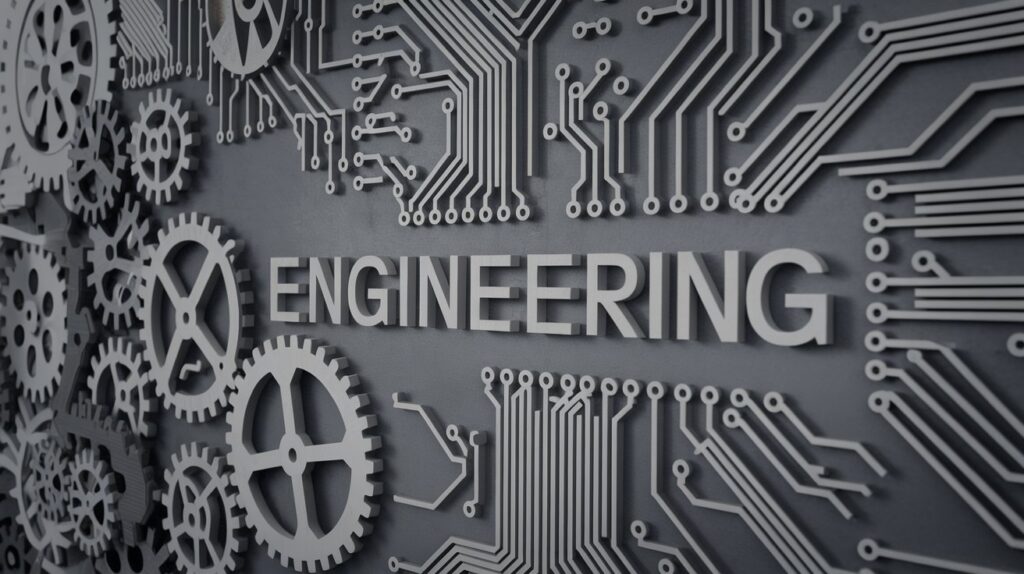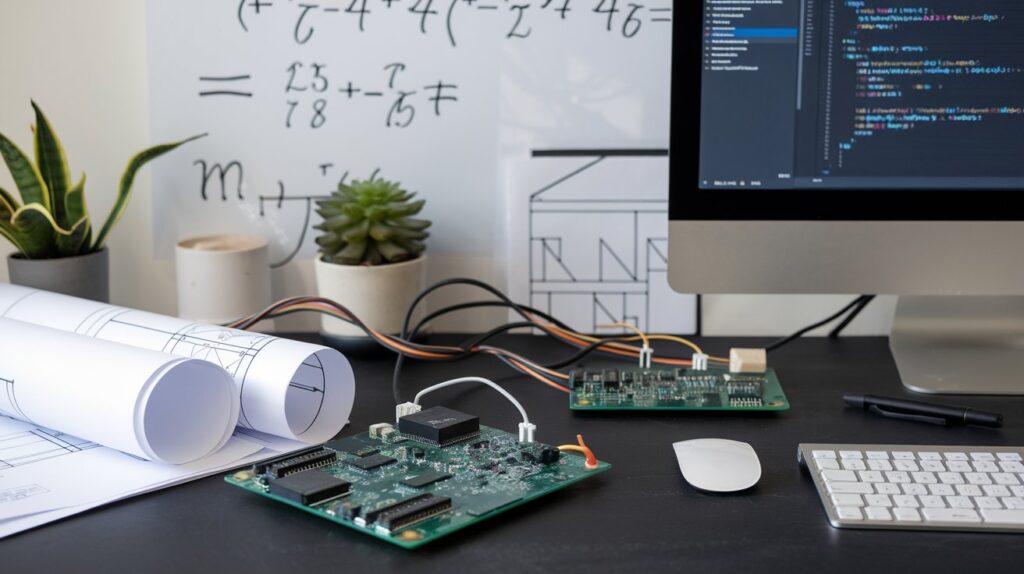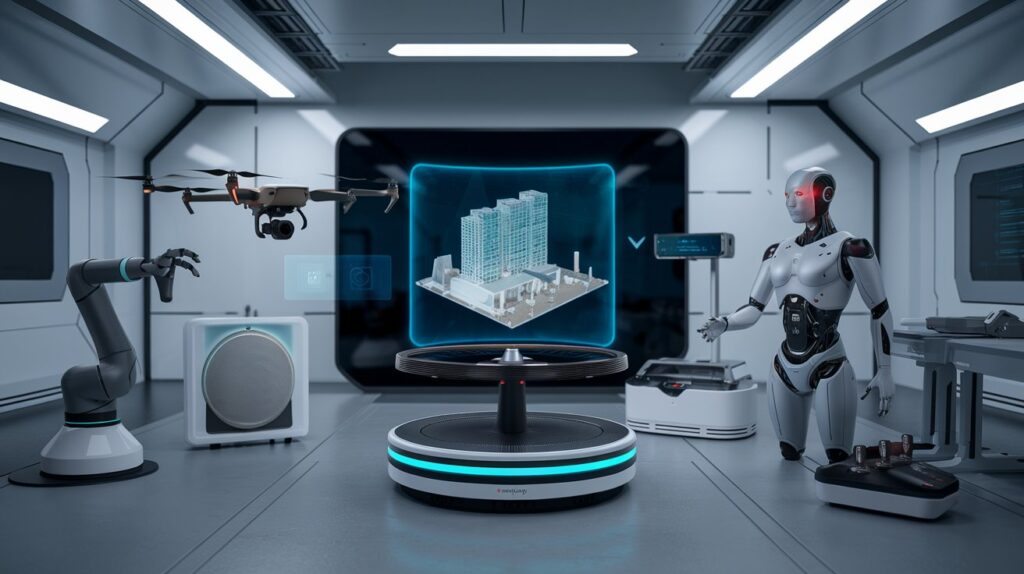An INTP career in engineering offers an intriguing blend of analytical problem-solving, creative thinking, and intellectual challenges that align well with the INTP personality type. Known for their curiosity and innovative mindset, INTPs often find that the engineering field provides a satisfying balance between independent work and collaborative problem-solving. This guide dives deep into how the INTP personality type fits within the engineering world, exploring the best career paths, industry trends, and strategies for success in 2024 and beyond.
Estimated Reading Time: 8-10 minutes
Table of Contents

Why Consider an INTP Career in Engineering?
For INTPs, engineering can be a natural fit, providing ample opportunity for deep analysis, creative problem-solving, and hands-on application—all aspects that align with their personality. Here’s why INTPs might find engineering particularly rewarding:
- Personality Alignment: INTPs, often called “the Thinkers,” are known for their intellectual curiosity and desire for understanding complex systems. Engineering suits their analytical minds by allowing them to work through intricate problems, explore innovative solutions, and think outside the box. This field caters to their need for independence and intellectual freedom, offering a balance of solitary work and collaborative innovation, which aligns well with the typical INTP work style.
- Natural Strengths: INTPs bring unique strengths to engineering, such as a strong ability to think logically and abstractly, which makes them effective at breaking down complex concepts. Their critical thinking, combined with a desire for precision, allows them to excel in roles that require troubleshooting, designing, and implementing efficient solutions. Engineering specialties for introverts, like software or research engineering, often provide an environment where they can work independently or in small teams, which enhances their natural abilities.
- Career Satisfaction: Engineering offers INTPs long-term career satisfaction through intellectually stimulating work and opportunities to innovate. In roles like software engineering or systems design, INTPs can pursue projects that align with their values and interests, whether that’s working with cutting-edge technology, developing sustainable solutions, or creating efficient systems. Moreover, as a field with ongoing growth and advancements, engineering provides continuous learning and development opportunities—key factors in maintaining an INTP’s engagement and satisfaction.
With its balance of logical challenges and creative freedom, engineering presents INTPs with a fulfilling and dynamic career choice, offering both stability and the excitement of innovation.

Best Engineering Paths for INTP Career Success
When it comes to an INTP career in engineering, certain paths offer the most potential for personal satisfaction and professional achievement. Here are some of the top engineering specialties that align well with INTP strengths and preferences:
- Software Development: INTPs are drawn to roles where they can solve complex problems and enjoy the freedom to experiment, and software development provides just that. In this role, INTPs can dive deep into coding, design algorithms, and create software solutions. Software development allows them to focus on systematic thinking, logical problem-solving, and continuous learning—skills that align well with their analytical nature. Additionally, INTPs often thrive in the flexibility and independence that come with many software engineering roles, whether in freelancing, startups, or tech companies.
- Research Engineering: For those with a love for discovery and innovation, research engineering can be an ideal fit. This role allows INTPs to investigate and experiment with new technologies and methods. Research engineers are responsible for developing advanced solutions and improving existing systems, which satisfies the INTP’s natural curiosity and desire for novelty. Whether in the fields of materials, robotics, or aerospace, research engineering can be a deeply rewarding path that matches the INTP’s intellectual drive and curiosity.
- Systems Design: INTPs who enjoy seeing the bigger picture and working on complex structures might find systems design to be a highly satisfying choice. This field involves creating and optimizing integrated systems, often requiring interdisciplinary knowledge and strategic planning. Systems designers focus on making sure various components of a project work seamlessly together, which appeals to the INTP’s knack for seeing patterns and understanding complex systems. This role offers a mix of technical challenge and high-level problem-solving, providing an ideal environment for INTPs to apply their analytical minds.
These engineering paths offer INTPs the opportunity to work independently or in focused teams, apply their unique thinking style, and stay engaged in intellectually stimulating and innovative work. By pursuing these areas, INTPs can find career success and fulfillment in engineering.

INTP Career in Engineering: Workplace Dynamics
INTPs in engineering often bring a unique approach to team interactions, work environments, and communication, which can shape their workplace dynamics in distinct ways. Understanding how INTPs navigate these dynamics can help them excel in their roles and feel more satisfied at work.
Team Interactions
As natural independent thinkers, INTPs tend to excel in environments where they have autonomy and can focus on problem-solving without excessive oversight. While they can collaborate effectively, INTPs often prefer small groups or one-on-one interactions rather than large team settings. In team projects, INTPs contribute by providing innovative ideas and analytical insights. They may not always be the most vocal members, but their ability to see multiple angles of a problem can be invaluable, especially when troubleshooting complex issues.
Work Environment
INTPs thrive in environments that allow flexibility, creativity, and a degree of solitude. Open, noisy spaces may drain them, making quieter offices or remote work setups more appealing. Engineering roles that allow for independent work on challenging projects tend to be the best fit, as INTPs are most productive when they can focus deeply without frequent interruptions. Organizations that encourage flexible hours or project-based goals rather than rigid schedules typically align well with an INTP’s work style.
Communication Style
INTPs approach communication in a logical, straightforward manner. They tend to focus on sharing information efficiently and may skip small talk in favor of discussing core ideas and solutions. While this direct style can sometimes come across as reserved, it reflects their genuine interest in optimizing communication for effectiveness. In teams, INTPs may prefer written communication or project-focused discussions, where they can contribute their ideas clearly and thoughtfully. Additionally, they value constructive feedback and appreciate colleagues who communicate transparently.
In roles that offer the right balance of independence, intellectual challenge, and structured interaction, INTPs can thrive in engineering, leveraging their analytical skills and unique communication style to make significant contributions to their teams.

Growth Potential: INTP Career in Engineering Fields
The engineering field offers significant growth potential for INTPs, with diverse opportunities for advancement, leadership, and skill development. For INTPs, who thrive on innovation and analysis, engineering provides a landscape that values both independent problem-solving and technical skill enhancement.
Advancement Paths
Engineering careers provide a variety of advancement paths, from specialized technical roles to higher-level managerial positions. For INTPs who prefer deepening their expertise over managing people, technical roles like senior engineer or lead designer are ideal, allowing for focus on complex problem-solving and advanced project work. Alternatively, for those INTPs interested in moving up the career ladder, options like project management or R&D leadership offer paths that combine innovation with strategic oversight.
Leadership Opportunities
While traditional management might not always appeal to INTPs, certain engineering leadership roles can align well with their skills. Positions like technical project leader or engineering consultant allow INTPs to guide projects and mentor junior engineers without the constant demands of team oversight. These roles enable INTPs to lead by example, demonstrating solutions and expertise rather than overseeing day-to-day personnel tasks. Additionally, technical leadership in fields such as systems architecture or software engineering can provide fulfilling leadership pathways.
Skill Development
Engineering is a field where continual skill development is both necessary and valued, making it ideal for the INTP’s natural curiosity and desire for learning. Areas like coding, software development, and data analysis offer abundant opportunities for skill-building through courses, certifications, and on-the-job experience. In fields such as research engineering, INTPs can also develop skills in experimental design, data science, and machine learning, which can deepen their technical expertise and open doors to emerging industry roles.
Through a commitment to skill growth and leveraging roles that align with their strengths, INTPs can build rewarding careers in engineering that allow them to lead, advance, and continually develop in the field.
Overcoming Challenges: INTP Career in Engineering
An engineering career can be immensely satisfying for INTPs, but it also comes with certain challenges. By identifying potential obstacles and adapting to them, INTPs can better navigate their career paths and thrive in a variety of engineering fields.
Common Obstacles
Navigating Team Dynamics
INTPs typically enjoy independent work and are naturally inclined toward projects that require deep focus and minimal social interaction. However, engineering roles often require regular teamwork, communication, and collaboration, which can sometimes be draining for INTPs who prefer solo work. This can lead to challenges in adapting to team meetings, frequent check-ins, and collaborative projects.
Communicating Technical Ideas Effectively
INTPs are known for their analytical and abstract thinking, making it easy for them to grasp complex concepts. However, explaining these ideas to others, particularly to those without a technical background, can sometimes be difficult. In team settings, an INTP may need to translate complex ideas into simpler terms, a skill that can require intentional practice.
Handling Routine or Repetitive Tasks
For INTPs, who often prefer innovation and problem-solving, repetitive tasks or extensive documentation can feel tedious. This can become challenging in engineering fields, where certain phases of a project may involve routine tasks, compliance checks, or thorough testing that may not feel as engaging as the problem-solving phases.
Adaptation Strategies
Establishing a Work Routine That Balances Independence and Collaboration
To thrive in an engineering setting, INTPs can establish a balanced routine that allows both solo work and team interactions. Setting clear boundaries, such as reserving specific times for focused work, can help INTPs dive deeply into tasks without constant interruptions. Communicating these preferences to supervisors and team members can foster a productive work environment that respects their need for quiet, uninterrupted work time.
Simplifying Complex Ideas for Team Communication
To communicate complex technical ideas more effectively, INTPs can work on simplifying their explanations and focusing on the essential points. This may involve using analogies, visual aids, or starting with high-level summaries before diving into the details. This approach helps ensure that key concepts are understood by team members from diverse backgrounds, improving overall team communication.
Creating Variety in Tasks to Avoid Monotony
INTPs can seek out opportunities that balance innovation with routine. For instance, branching into roles that involve a blend of research, design, and implementation may keep them engaged and prevent burnout from repetitive tasks. Additionally, taking on new learning opportunities or side projects within their field can provide the mental stimulation they need.
Success Tips
- Stay Inquisitive and Embrace Lifelong Learning: INTPs thrive when they are continually learning. Keeping up with industry trends, exploring new technologies, and engaging in self-directed learning can help INTPs feel fulfilled and enhance their career growth.
- Network with Like-Minded Colleagues: Finding mentors or joining engineering networks with others who share similar technical interests can provide INTPs with valuable support, advice, and inspiration.
- Regularly Seek and Apply Feedback: Constructive feedback can help INTPs refine their communication and collaborative skills, making it easier to navigate team dynamics and succeed in diverse roles.
By understanding these challenges and implementing strategies to overcome them, INTPs can capitalize on their strengths, adapt to various work environments, and enjoy long-term success in the engineering field.
Choosing Your Engineering Specialty as an INTP
Finding the right engineering specialty is crucial for INTPs aiming for a rewarding and intellectually stimulating career. As an INTP, your career in engineering can leverage strengths in analysis, problem-solving, and creativity. Here’s a guide to help you explore which engineering specialty might best align with the unique qualities of an INTP career in engineering.
Field Comparison
Software Engineering
Software engineering is highly suitable for INTP personalities due to its emphasis on logic, creative problem-solving, and independent work environments. For an INTP career in engineering, software development and systems architecture roles offer opportunities to engage deeply with complex programming and data analysis. As a software engineer, you’ll have the chance to continuously learn and innovate, which aligns with the natural strengths of an INTP.
Research and Development (R&D)
Research engineering is ideal for INTPs who are driven by curiosity and a passion for new knowledge. In R&D roles, you can find a career that allows you to design experiments, analyze theoretical problems, and push the boundaries of technology. Industries such as aerospace, biotechnology, and energy provide abundant opportunities for INTP success in engineering jobs within research and development. These roles are often autonomous, allowing INTPs to dive into deep analysis and innovative projects without excessive social interaction.
Electrical Engineering
For those drawn to both hardware and software, electrical engineering provides a balanced, people-oriented yet analytical field. Within electrical engineering, INTPs can explore specialties like electronics, robotics, and telecommunications. This field aligns well with engineering specialties for introverts as it involves detailed project work and opportunities for solitary problem-solving in both lab and corporate settings.
Mechanical Engineering
Mechanical engineering may appeal to INTPs interested in physical systems and mechanics. Specialties within this field, such as thermodynamics, materials science, and mechanical systems design, require technical precision and an understanding of complex mechanical concepts. As an INTP in mechanical engineering, you’ll have opportunities for both hands-on work and independent analysis, which suits your problem-solving approach and analytical mindset.
Decision Framework
To select the best INTP engineering career path, consider these steps:
- Identify Your Interests: Reflect on the engineering topics that naturally engage you, whether in programming, machine dynamics, electronics, or experimental research. An INTP career in engineering should align with your curiosity and drive to understand complex systems.
- Analyze Your Strengths: Understanding where you excel, such as analytical thinking, technical writing, or coding, can help ensure you pick a field that maximizes your potential for success.
- Consider Work Environments: Think about the work settings that best align with your personality. Software engineering and research engineering offer INTPs more solitary, focused environments, while mechanical engineering may include more hands-on or fieldwork.
- Evaluate Long-Term Goals: Assess the advancement potential, lifestyle, and skill-building opportunities each specialty provides. For example, fields like software development and R&D offer continuous learning opportunities, which align well with INTPs’ desire for intellectual stimulation.
Career Matching
Based on this framework, here’s how certain fields align with the INTP career in engineering:
- Innovation-driven INTPs: Software engineering and R&D roles are ideal for those who value problem-solving, continuous learning, and innovative challenges.
- Analytical INTPs: Electrical engineering and research engineering align well with INTPs who enjoy rigorous analysis and complex problem-solving.
- Flexibility-seeking INTPs: Software engineering and electrical engineering provide options for remote work and diverse work environments, catering to INTPs who need variety and adaptability.
When choosing an engineering specialty as an INTP, the key is to align your natural analytical strengths and career ambitions with the field that offers the most compatible challenges and opportunities for growth. This thoughtful approach can guide you toward a successful, fulfilling, and well-suited career in engineering.

Future Outlook: INTP Career in Engineering 2024
Engineering continues to be a field with evolving trends, attractive salary prospects, and increasing demand, especially for those with analytical skills and a natural aptitude for problem-solving, such as INTPs. Here, we explore how industry trends, salary expectations, and market demand are shaping the future of an INTP career in engineering in 2024.
Industry Trends
Engineering fields are undergoing significant transformations, driven by technological advancements, sustainability concerns, and the need for innovation across industries. For INTPs in engineering careers, these trends offer unique opportunities:
- Automation and Artificial Intelligence: Engineers with expertise in AI and automation are becoming essential, especially in fields like software and robotics engineering. INTPs with an interest in AI and machine learning may find software engineering a particularly attractive path as industries continue to innovate and automate.
- Sustainability and Green Engineering: As sustainability becomes increasingly prioritized, fields like environmental engineering and renewable energy systems are growing. INTPs who enjoy solving complex, high-stakes problems may find satisfaction in contributing to sustainable innovations, such as alternative energy sources or waste reduction technologies.
- Advanced Manufacturing and Robotics: With manufacturing undergoing a digital transformation, robotics engineering and systems design are essential skills for engineers looking to stay competitive in this sector. An INTP career in engineering can thrive here, as these roles often require high levels of analytical thinking and strategic problem-solving, aligned with the INTP personality.
Salary Prospects
The salary potential within INTP engineering careers is promising, with many engineering fields offering competitive pay and opportunities for significant growth based on skill and experience.
- Entry-Level Salaries: Entry-level engineering roles typically offer lucrative starting salaries, with fields like software engineering and electrical engineering leading the way. In 2024, a newly graduated engineer can expect to earn between $65,000 and $85,000 annually, depending on the specialty.
- Mid-Career Earnings: Engineers in mid-career positions can expect a substantial increase, often reaching between $90,000 and $120,000. Specializations in AI, robotics, and systems engineering tend to be on the higher end of the pay scale, aligning well with the skills that INTPs bring to these roles.
- Senior-Level Income: Senior engineers, particularly in managerial or lead roles within software development, research engineering, or advanced manufacturing, often earn upwards of $150,000. For INTPs who prefer technical leadership without extensive people management, many companies now offer “technical lead” positions that emphasize advanced skills over traditional management, a rewarding option for the right candidates.
Market Demand
Market demand for engineering roles remains robust, and several specialties are expected to see rapid growth in 2024 and beyond. Here’s what this means for an INTP career in engineering:
- Software Engineering: The demand for software engineers is expected to continue rising sharply as digital transformation spans across all industries. Fields like cybersecurity, machine learning, and full-stack development are in especially high demand. With strong logical skills, INTPs are well-suited for the analytical challenges these roles present.
- Data Engineering and Analysis: As companies increasingly leverage data, data engineering and analysis roles are expanding rapidly. INTPs who enjoy working with data and creating systems for data management may find data engineering a fulfilling and well-compensated path.
- Sustainable Engineering Fields: Environmental and energy engineering roles are experiencing increased demand as industries shift towards more sustainable practices. For INTPs interested in science and technology, these roles offer the chance to work on impactful projects while meeting the growing needs of an environmentally conscious market.
An INTP career in engineering has a bright outlook in 2024, with numerous fields offering high salaries, growth potential, and challenges that suit INTPs’ intellectual and analytical strengths. By choosing fields aligned with current trends and market demands, INTPs can enjoy a fulfilling, future-proof engineering career.
Conclusion
An INTP career in engineering offers an ideal blend of intellectual challenge, innovation, and problem-solving opportunities that align with INTP strengths. From high-paying roles in software development and data engineering to socially impactful paths in environmental and sustainable engineering, the options are vast and promising. By aligning their natural analytical skills with a carefully chosen engineering specialty, INTPs can find a rewarding career that suits both their personal and professional goals.
In 2024, the future is especially bright for INTPs in engineering, thanks to industry trends in automation, AI, and sustainable practices. With thoughtful planning and an understanding of evolving demands, INTPs can carve out a fulfilling and resilient path in this dynamic field, positioning themselves for long-term success in roles that not only offer competitive salaries but also the opportunity to make a meaningful impact.
References
Here are some relevant references for the blog:
- Truity – “INTP Careers and Career Matches”
https://www.truity.com/career-personality-test - Myers-Briggs Foundation – “Understanding the Myers-Briggs Personality Types”
https://www.myersbriggs.org - O*NET Online – “Engineering Occupations and Work Environment”
https://www.onetonline.org - Bureau of Labor Statistics (BLS) – “Occupational Outlook for Engineers”
https://www.bls.gov/ooh/architecture-and-engineering/home.htm - Indeed Career Guide – “Best Engineering Jobs for Your Personality Type”
https://www.indeed.com/career-advice
These references provide insights into the personality-career alignment, engineering career prospects, and workplace trends relevant to INTPs considering a career in engineering.




